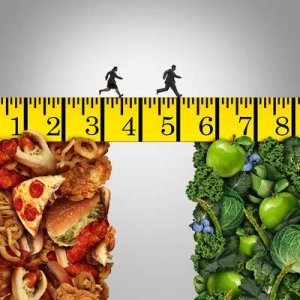Are Australians ruining their health with junk food? CSIRO shocking research reveals the truth
By
- Replies 1
It’s no secret that Australians love their food. From the classic steak and chips to our beloved Vegemite on toast, we’re a nation that knows how to enjoy a good meal.
But is it detrimental to our health?
The answer is yes, Australia.
A new report by The Commonwealth Scientific and Industrial Research Organisation or CSIRO researching the diets of over 235,000 Australian adults confirmed that too much of our diet relies heavily on unhealthy fast foods, alcohol and sugary snacks.
The research also found that only four in ten adults consume three or more different vegetables as their main meal.
CSIRO’s Healthy Diet Score Report used Australian dietary guidelines to rate people’s diets out of 100. The quantity, quality, and variety of food eaten, among other factors, were used to assess the respondents’ eating habits.
Sadly, Australians surveyed only scraped a pass, with the average score being 55 out of 100.
The worst diets came from the construction workers, with a score of 45 from the study—a sad reality when it comes to this particular working industry. Conversely, retirees and those in the health and wellness industry were found to have the best diets.
The CSIRO report also concluded that women only have a slightly better diet quality than men, with a vegetable intake of 62 out of 100 and a general score of 53 out of 100.
Another stark discovery of the CSIRO report was that the worst category was the consumption of ‘discretionary foods’, such as alcohol, takeaway foods and confectionery which was the biggest contributor to the score.
It’s no surprise to hear that too much of our diets rely on foods and drinks that simply do not help our health.
Luckily, the reverse is also true. Just making a couple of small changes to your diet can significantly boost the health of your diet and your waistline too!
For Professor Lauren Ball from the Community Health and Wellbeing at the University of Queensland, the report was unsurprising.
‘It is something that we've known for a long time, that Australia is so well positioned to eat well, however, that's not what we see when we look at the evidence in terms of the food that Australians eat at the moment,’ she said.
Professor Ball states, ‘Veggies and fruits should be the cornerstone of our daily diet.’
‘Whenever you're in a position to make a choice between a meal or an option that's higher in veggies or fruit, or lower, choose one that's higher.
‘Anything that comes from the aisles that you walk up and down in supermarkets as opposed to the outside area, anything that's packaged and processed, they'll be higher in sodium.’
There are simple ways to start improving your diet without compromising your budget or taste buds.
Fresh produce is always best when it comes to making healthy meals, so start by opting to buy fresh over processed meats, vegetables, and fruits.
It is also recommended that you prioritize water or low-sugar drinks, like milk and tea, over soft drinks, juices or alcoholic beverages.
Additionally, by shopping in season, you can save a lot on food. Since fruits and vegetables will be in abundance, prices for produce will go down, and you can rest assured that you’ll be buying the freshest options.
When it comes to health, it’s always a good idea to have a plan and commit to making some small changes to your diet.
With a little bit of planning and by replacing a few snacks or meals with healthier alternatives, you will soon notice a difference in your daily life.

Do you agree with CSIRO’s findings? Nothing beats conversation and support. If you have any tips or recipes you’d like to share, please let us know in the comments below!
But is it detrimental to our health?
The answer is yes, Australia.
A new report by The Commonwealth Scientific and Industrial Research Organisation or CSIRO researching the diets of over 235,000 Australian adults confirmed that too much of our diet relies heavily on unhealthy fast foods, alcohol and sugary snacks.
The research also found that only four in ten adults consume three or more different vegetables as their main meal.
CSIRO’s Healthy Diet Score Report used Australian dietary guidelines to rate people’s diets out of 100. The quantity, quality, and variety of food eaten, among other factors, were used to assess the respondents’ eating habits.
Sadly, Australians surveyed only scraped a pass, with the average score being 55 out of 100.
The worst diets came from the construction workers, with a score of 45 from the study—a sad reality when it comes to this particular working industry. Conversely, retirees and those in the health and wellness industry were found to have the best diets.
The CSIRO report also concluded that women only have a slightly better diet quality than men, with a vegetable intake of 62 out of 100 and a general score of 53 out of 100.
Another stark discovery of the CSIRO report was that the worst category was the consumption of ‘discretionary foods’, such as alcohol, takeaway foods and confectionery which was the biggest contributor to the score.
It’s no surprise to hear that too much of our diets rely on foods and drinks that simply do not help our health.
Luckily, the reverse is also true. Just making a couple of small changes to your diet can significantly boost the health of your diet and your waistline too!
For Professor Lauren Ball from the Community Health and Wellbeing at the University of Queensland, the report was unsurprising.
‘It is something that we've known for a long time, that Australia is so well positioned to eat well, however, that's not what we see when we look at the evidence in terms of the food that Australians eat at the moment,’ she said.
Professor Ball states, ‘Veggies and fruits should be the cornerstone of our daily diet.’
‘Whenever you're in a position to make a choice between a meal or an option that's higher in veggies or fruit, or lower, choose one that's higher.
‘Anything that comes from the aisles that you walk up and down in supermarkets as opposed to the outside area, anything that's packaged and processed, they'll be higher in sodium.’
There are simple ways to start improving your diet without compromising your budget or taste buds.
Fresh produce is always best when it comes to making healthy meals, so start by opting to buy fresh over processed meats, vegetables, and fruits.
It is also recommended that you prioritize water or low-sugar drinks, like milk and tea, over soft drinks, juices or alcoholic beverages.
Additionally, by shopping in season, you can save a lot on food. Since fruits and vegetables will be in abundance, prices for produce will go down, and you can rest assured that you’ll be buying the freshest options.
When it comes to health, it’s always a good idea to have a plan and commit to making some small changes to your diet.
With a little bit of planning and by replacing a few snacks or meals with healthier alternatives, you will soon notice a difference in your daily life.
Key Takeaways
- A survey by CSIRO reveals that only two in five Australians consume enough vegetables.
- Alcohol, takeaway food, and confectionery are the main components of the average Australian's diet.
- The report found that construction workers had the least healthy diets, while retirees and those in the fitness industry ate the best.
- Health expert Professor Lauren Ball emphasised the importance of eating fresh produce and avoiding processed foods. She also pointed out that eating healthily can still be budget-friendly with careful planning and buying in season.
Do you agree with CSIRO’s findings? Nothing beats conversation and support. If you have any tips or recipes you’d like to share, please let us know in the comments below!











